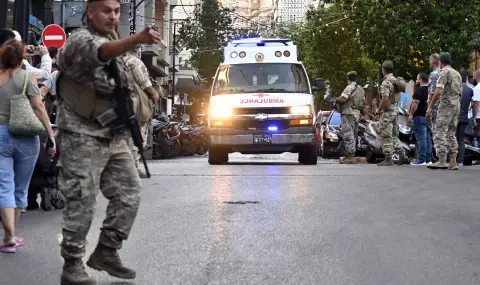Thousands of pagers have been blown up in Lebanon in recent days, and later the same thing happened to many portable radios. It is still not clear who exactly is behind the attacks, but indications are growing that this is an Israeli operation against the Shiite militia Hezbollah. Is this a legitimate means of waging war or a violation of international law? The German public broadcaster ARD asked four international law lawyers this question.
Some of the experts' assessments differ significantly, although they refer to the same basis: the UN arms treaty, whose full name is the “Convention on Prohibitions or Restrictions on the Use of Certain Conventional Weapons Which May Be Deemed to Be Excessively Injurious or to Have Indiscriminate Effects“ (CCW). The agreement consists of a total of five protocols, the second of which - on mines, booby traps and other devices - is crucial to the current discussion. A total of 106 countries in the world have ratified this protocol, including Israel.
Would it have been expected that there would be many civilian casualties?
International law expert Andrew Clapham from the University of Geneva refers to this Protocol II. In an interview with the DPA news agency, he said that it includes a ban on the laying of booby traps, which are in principle harmless devices, but not when used as weapons. In the case of Lebanon, these are communication devices such as pagers and radios. The protocol explicitly prohibits the use of such weapons against civilians under all circumstances - for attack, defense or revenge.
The lawyer is convinced that even when preparing the attack in Lebanon, it could have been foreseen that innocent people would also be harmed. Lebanese media reported that devices had also exploded in supermarkets, killing a child. The use of explosive devices against people who are not combatants constitutes a “direct attack on civilians“ - that is, it can also be considered a war crime, Clapham believes.
Targeted strike against Hezbollah?
The UN Convention on Conventional Weapons does not prohibit all booby traps, but only those that “cause excessive suffering or act indiscriminately“. The assessment of Elvira Rosert, a political scientist at the University of Hamburg, is built around this aspect of the issue. She told ARD that in order to constitute a violation of the UN Convention, the attack in Lebanon had to be directed directly at the civilian population. But the explosions of pagers and mobile radios were primarily intended for Hezbollah fighters. Rosert also points out something else: the data known so far shows that only pagers that were not freely sold on the commercial network at all - that is, they were not available to the civilian population, but only to Hezbollah fighters - exploded. "The destruction of Hezbollah's means of communication probably provides a significant military advantage and regardless of the moral assessment of this action, it probably has legal coverage," Rosert wrote on the social network X.
„There is no violation of international law“
Thomas Bury, professor of European and international law at the University of St. Gallen, is of a similar opinion. "In an armed conflict such as the one between Israel and Hezbollah, enemy fighters and the communications systems used for military purposes are legitimate targets for attack," he told DPA, adding:
“Provided that the attack was intended to destroy the enemy's entire communications structure and to hit a large number of fighters, it can be argued with a relatively high degree of probability that the attack does not violate international humanitarian law“.
The attack is “very problematic“
In an interview with Deutsche Landfunk, international law expert Klaus Kress also suggested that Israel was behind the attack, although this has not been officially confirmed. He considers the detonation of the pagers in Lebanon to be “very problematic”. From the perspective of international law, a number of serious questions arise, he told ARD:
“First, were these devices really used only against Hezbollah fighters, i.e. against people whom Israel has the right to attack? And second, did Israel do everything possible in advance to minimize the damage to the civilian population? And third, couldn't it have been foreseen from the very beginning that there would be enormous damage among the civilian population?“.
Stephan Talmon, an international law expert from the University of Bonn, is perfectly clear in his assessment. In an interview with ARD, he recalled that the conflict between Israel and Hezbollah is an international armed conflict in which Hezbollah is a belligerent party, that is, it can completely “legitimately become the object of an attack“ - whether with drones, missiles or cyberattacks. All of this is legal, he emphasizes.
The question of proportionality is very complex
However, the question of the proportionality of the violence used in Lebanon is more complex, since it requires finding a balance between the “immediate military advantage” that this attack provides and the damage to the civilian population. International law in this case does not offer 100 percent precision, since it is known that civilian casualties cannot always be completely avoided during attacks. “International law takes this fact into account“, Talmon tells ARD.
Emilian Lilov Editor
